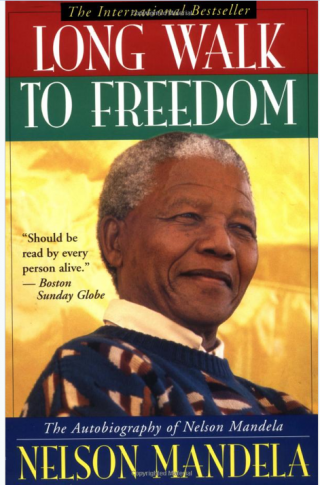Optimism
Mandela—The Power of Choosing Optimism Over Despair
Even in prison, Mandela kept his "head pointed toward the sun"
Posted December 6, 2013

“Prison and the authorities conspired to rob each man of his dignity. In and of itself, that assured that I would survive, for any man or institution that tries to rob me of my dignity will lose because I will not part with it at any price or under any pressure. I never seriously considered the possibility that I would not emerge from prison one day. I never thought that a life sentence truly meant life and that I would die behind bars. Perhaps I was denying this prospect because it was too unpleasant to contemplate. But I always knew that someday I would once again feel the grass under my feet and walk in the sunshine as a free man.
I am fundamentally an optimist. Whether that comes from nature or nurture, I cannot say. Part of being optimistic is keeping one’s head pointed toward the sun, one’s feet moving forward. There were many dark moments when my faith in humanity was sorely tested, but I would not and could not give myself up to despair. That way lay defeat and death.”
- Nelson Mandela, Long Walk to Freedom
Often when we feel defeated, when we give up trying to change anything, we have no idea what the cost to the world is. We just accept things as they are.
In 2001 my husband and I took a trip to Capetown, South Africa and saw the bleak conditions at Robben Island, where Nelson Mandela was held for 18 of the 27 years he would spend in prison. Everywhere we went outside though, the mood was jubilant. Apartheid had ended in 1994, and people were making plans. A black security guard (a former physicist) said he was thinking of going to business school. An Indian taxi driver mused that anyone of any color could now date anyone else. My husband, who is white, and I (Asian) sat a little closer together. She also said, as we drove by a public beach, that she and her sister were not allowed to walk on that beach after apartheid started in 1948, and when it ended 46 years later they went and stuck their feet in the water just because they could. Everywhere people welcomed us because after being isolated from the world for so long, they rejoiced in doing business, exchanging ideas with others.
Nelson Mandela, by remaining optimistic, determined, and tireless, through all the dark times, changed all of these people’s lives, created a new future for his country and inspired the world to greater cooperation. Today, when I hold my husband’s hand in public, or think about what careers my daughters could contemplate, I’ll think of the optimistic pioneers who sacrificed and worked to make such freedoms possible. Perhaps I'll think about the difference my remaining optimistic and resilient in my life could make in the world too.


